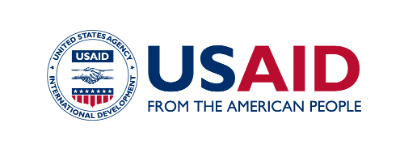News > Blog
Driving Change: Youth-Led Worker Cooperative Transforming Kenya’s Automotive Industry
Published 02/15/2024 by Global Communities

By Tindi Sitati and Mike Kipngeno
Rooted in the energy of youth, the Transparency Auto Worker Cooperative was created in 2022 through a collective vision of former automotive engineering students from Eastlands College of Technology (ECT) in Nairobi County, Kenya. The cooperative, which currently supports 22 active members, is a response to the pressing challenges of unemployment faced by youth aged 18 to 35 in the East African country.

“The worker cooperative model is important to the college, because we are able to empower the students that come through after they attain technical skills,” said Roy Munyalo, manager of the Informal Sector Business Institute.
The Transparency Auto Worker Cooperative specializes in various automotive services including oil changes, diagnostic services, wheel alignment, engine maintenance, bodywork and electrical repairs, striving to provide services needed by the community at an affordable rate.
Motivated to take control of their own destinies and generate income, students decided to unite forces and establish a worker cooperative that not only allowed them to become business owners but also channel their skills into ventures aligned with their passions. In Kenya, youth make up 35% of the population with a 67% unemployment rate, the highest rate in the country. Amid the country’s challenging job market, the cooperative became a platform for these automotive enthusiasts to transform their expertise into meaningful income-generating opportunities.
“The cooperative allows us to be our own bosses. It allows youth to have clear job opportunities and jobs that we can do with passion,” said John Karika, Secretary of the Transparency Auto Worker Cooperative.
The Transparency Auto Worker Cooperative gained official registration status from Nairobi County with support from Global Communities’ Cooperative Leadership, Engagement, Advocacy and Research (CLEAR) Program. CLEAR is funded through the United States Agency for International Development’s Cooperative Development Program.
“We chose the local cooperative model, because we saw it fit our needs through teamwork,” said Kamau Njenga, chairperson of the Transparency Auto Worker Cooperative. “Decisions are made through a panel of membership, [and] we as the business owners are able to determine the challenges that effect us because we are the ones working in the cooperative.”

Through CLEAR, cooperative members were trained on governance, member sensitization, leadership, marketing and the principles of the cooperative model. The auto workers were also taught how to make informed decisions that align with their cooperative’s goals and values. By learning about proper governance, they established a transparent decision-making process to ensure accountability within their businesses.
Through member sensitization and leadership training, auto workers create a culture of inclusivity and participation within their cooperative. These applicable lessons strengthen their sense of community and encourage active engagement in cooperative activities and initiatives.
“Here, you get the freedom to tell your client what is right and what is wrong, what to do and what not to do,” said Mike Kamau, ECT student and member of the Transparency Auto Worker Cooperative. “Out there, you get a side hustle and your supervisor tells you what to work on.”
The cooperative’s business model has played a vital role in building the confidence of its young members as they navigate the complexities of running a business. In the process, these members have also expanded their social networks, creating a ripple effect of positive impact within the community.
“I really appreciate the work the Transparency Auto Worker Cooperative does,” said Wanjiku Njoroge, a client of the cooperative. “They are efficient, affordable and their service is very good.”
Learn more about the impact of the Transparency Auto Worker Cooperative and its partnership with Global Communities in the video below.

This success story is made possible by the generous support of the American people through the United States Agency for International Development (USAID). The contents are the responsibility of Global Communities and do not necessarily reflect the views of USAID or the United States Government.






